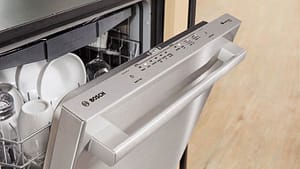Induction burners have become increasingly popular in modern kitchens due to their fast heating, sleek appearance, energy efficiency, and enhanced safety features. However, like any other appliance, they also come with their fair share of drawbacks. In this article, we will explore the pros and cons of induction burners to help you make an informed decision about whether they are the right choice for your kitchen.
Induction Burners
Let’s start with the advantages of induction burners:
1. Fast Heating
Induction burners are known for their exceptional speed when it comes to heating up. Unlike traditional gas or electric stovetops, which rely on heating elements or open flames, induction burners use electromagnetic fields to directly heat the cookware. This means that you can start cooking in a matter of seconds, saving you valuable time in the kitchen.
2. Modern Look
Induction burners have a sleek and modern appearance that can instantly elevate the aesthetics of your kitchen. Their smooth glass surface and minimalistic design make them a perfect fit for contemporary kitchen styles. Whether you have a modern or traditional kitchen, an induction burner can add a touch of elegance to your cooking space.
3. Energy Efficient
If you’re conscious about your energy consumption, induction burners are a great choice. They are highly efficient in converting energy into heat, resulting in less wasted energy compared to gas or electric burners. This not only saves you money on your utility bills but also reduces your carbon footprint, making it an eco-friendly option.
4. Safer Option
Induction burners are designed with safety in mind. Since the heat is generated directly in the cookware, the surface of the burner remains relatively cool to the touch. This significantly reduces the risk of accidental burns, making it a safer option, especially for households with children or elderly family members. Additionally, induction burners have built-in safety features such as automatic shut-off and child lock functions.
5. Low Profile
Another advantage is their low profile. Unlike bulky gas ranges or electric cooktops with raised heating elements, induction cooktops sit flush with the countertop. This not only provides a seamless and streamlined look but also allows for easier cleaning. With no crevices or grates to worry about, maintaining a tidy kitchen becomes a breeze.
While induction burners offer numerous benefits, it’s important to consider their drawbacks as well: Here are the cons.
1. Pricey for Quality
One of the main disadvantages of induction burners is their cost. If you want high-quality, it can be quite expensive compared to traditional gas or electric stovetops. However, it’s important to note that investing in a reputable brand and model can ensure durability and longevity, making it a worthwhile investment in the long run.
2. Cheaply Made Affordable Options
On the other end of the spectrum, affordable induction burners may be tempting, but they often come with compromises in terms of build quality and performance. Cheaper models may have issues such as uneven heating, shorter lifespan, or lack of advanced features. It’s crucial to do thorough research and read customer reviews before settling for a budget-friendly option.
3. Induction Ready Cookware
Induction burners require specific cookware that is compatible with magnetic induction. This means that your existing pots and pans may not work on an induction burner unless they have a magnetic base. While many cookware manufacturers now offer induction-ready options, you may need to invest in new cookware, which can be an additional expense.
4. User-Unfriendly Controls
Some users find the controls on the burners to be less intuitive compared to traditional stovetops. The touch controls or digital interfaces can take some time to get used to, and accidental activation of burners due to water or spills on the controls can be frustrating. However, with practice and familiarity, this issue can be overcome.
5. Maintenance Challenges
Finding certified technicians who are experienced in repairing induction Cooktops can be difficult due to the relatively new technology. However, if you are in the Southwest Michigan area, Allen’s Appliance Repair is happy to assist you with your induction burner maintenance needs.
In conclusion, induction burners offer several advantages such as fast heating, a modern look, energy efficiency, enhanced safety, and a low-profile design. However, it’s important to consider the drawbacks, including the price range, the need for induction-ready cookware, user-unfriendly controls, and potential maintenance challenges. By weighing the pros and cons, you can determine whether an induction burner is the right fit for your kitchen and cooking needs.





